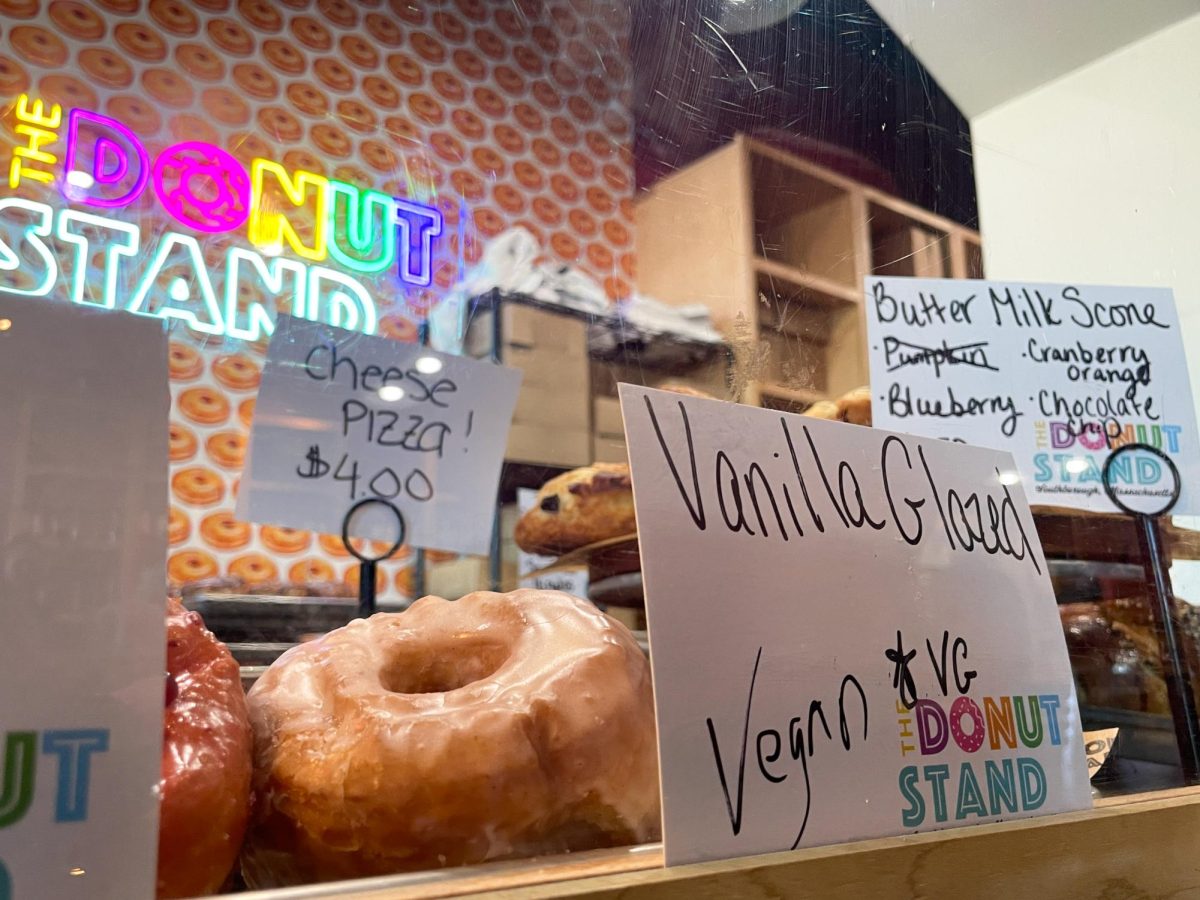By Shae Feather
According to an article on Psychology Today, the majority of teens are over-caffeinated due to the rising trend of coffee among adolescents. This poses the question: why do teens feel the need to have so much caffeine? Even more so, should adults be worried? Students and teachers at Hopkinton High School react.

Psychology teacher, Michael Hamilton comments that, “Caffeine is a real psycho active drug and its addictive. It works on adenosine (an inhibitory neurotransmitter) receptors in the brain so it works in the same ways as a other drugs but the drugs are less clear in terms of damage.â€
After admitting to drinking coffee himself on a daily basis, Hamilton stated, “Its damaging effects are a little bit unclear, but I find it interesting that students have gotten the need to drink it more often. In moderation, caffeine is probably not a problem and the damaging effects of caffeine are not as strong.â€
Hamilton says, “In 14 years of teaching, the caffeine consumption in teens has gone up astronomically. In 2011, 75% of adolescents said they consumed caffeine daily. Thirty years ago, that was 5%.â€
Senior Lucy Baldiga blames the increase on the rigorous schedule school and other activities impose on teens. “We get up early, spend six hours at school, and then many of us go to after-school jobs. We also have sports, clubs, and homework that demand our attention in the afternoon. I’m not done with everything until ten or eleven at night, and then I have to wake up at six in the morning for class the next day. Its much easier to complete these tasks when I have coffee in my system.â€

Hamilton comments,“I think the demand has gone up. Students are expected to be in so many different things that just wear you out and caffeine seems like a decent supplement to help out.â€
However, coffee and caffeinated beverages are not in all students’ systems. Freshman Robbie Hart says, “I don’t like coffee at all, but once in a while I have a caffeinated soda†He believes, “Parents should limit their kids on how much coffee there kids on how much drink. Too much coffee can be bad for you and you can get addicted to it and that wouldn’t be goodâ€
Hamilton explains that withdrawal symptoms can occur with caffeine, “[People] can develop physical dependence like other drugs along with withdrawal symptoms like headache fatigue, irritability.â€
Baldiga confirms when she says, “If I don’t drink enough coffee I’ll get bad migraines. I used to become jittery after drinking a lot, but my body’s grown used to the large amount of caffeine.â€
The need for caffeine has unarguably gone up in adolescents, in such an affluent town as Hopkinton. Hart agrees, “When kids go to school in the morning they’re just so tired and the only way to wake them up is drink a some coffee.â€
But is it really an area of concern?
Baldiga says,“As a high school student I recognize how stressful and demanding everyday life is, and would not stop drinking something that is so beneficial. Its not an adult’s job to regulate what a sixteen or seventeen year old eats and drinks (given that the substances are legal/safe to consume) and as long as the teen is aware of possible consequences, it is their problem, and their problem alone.â€





